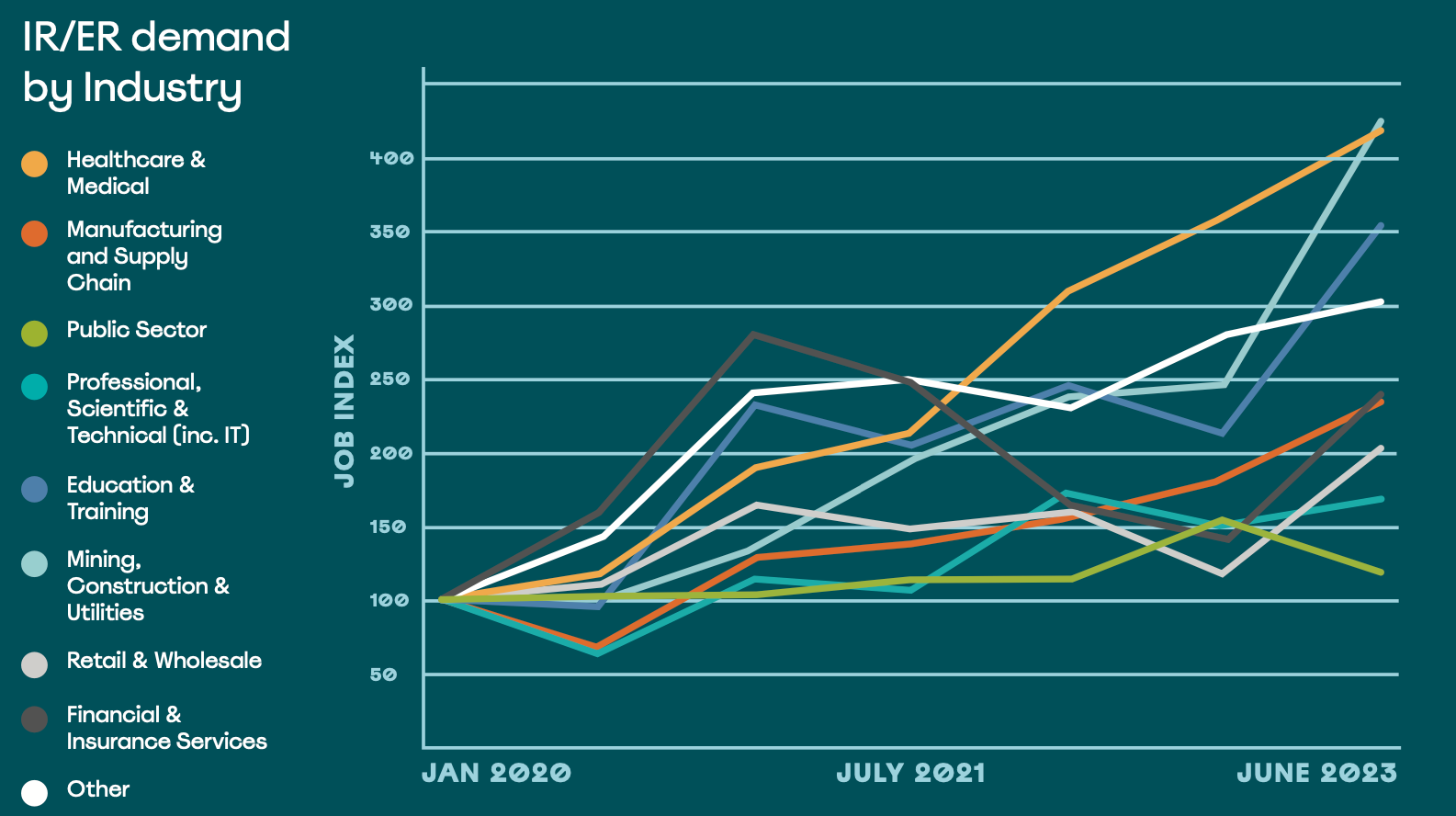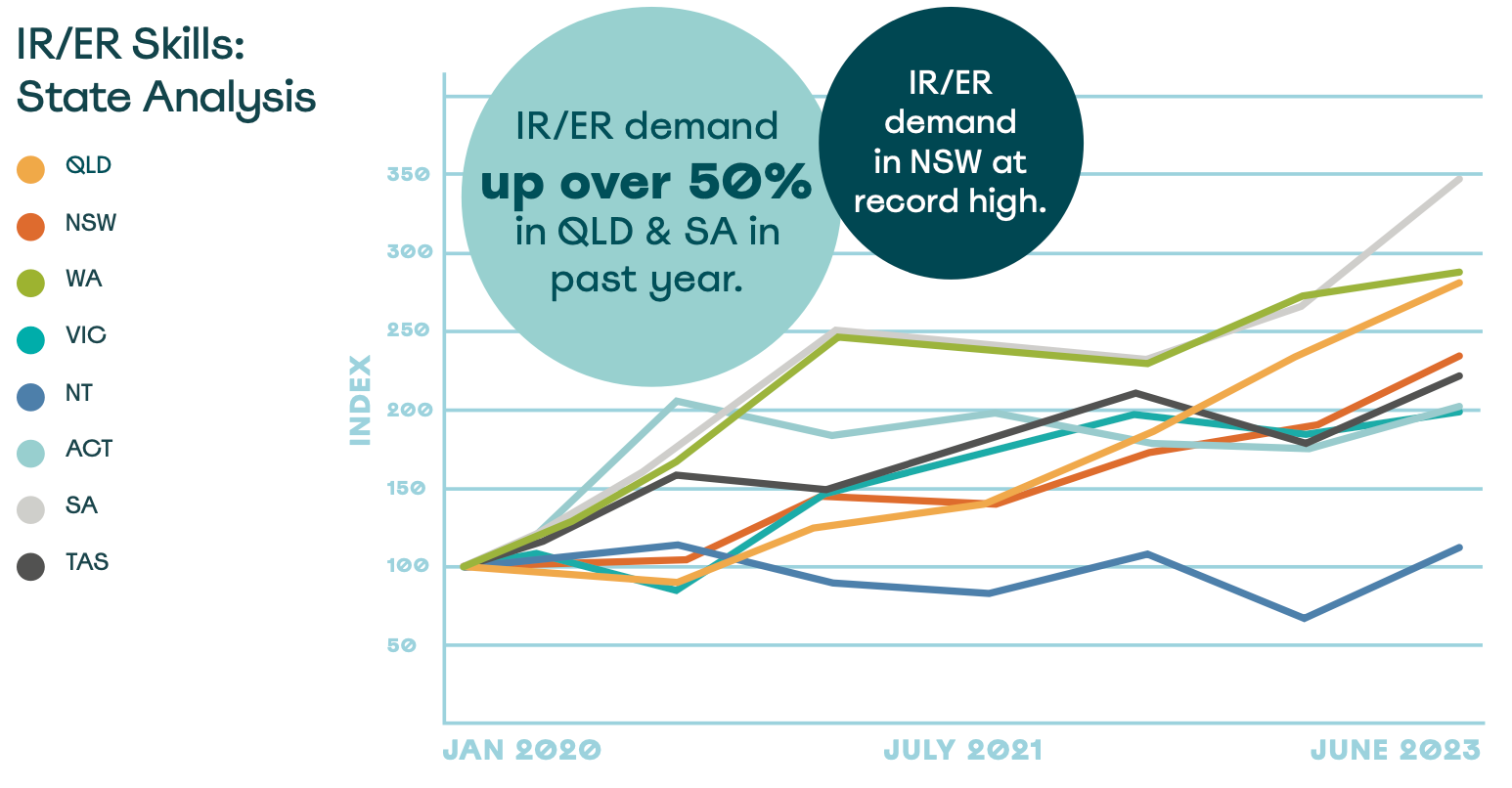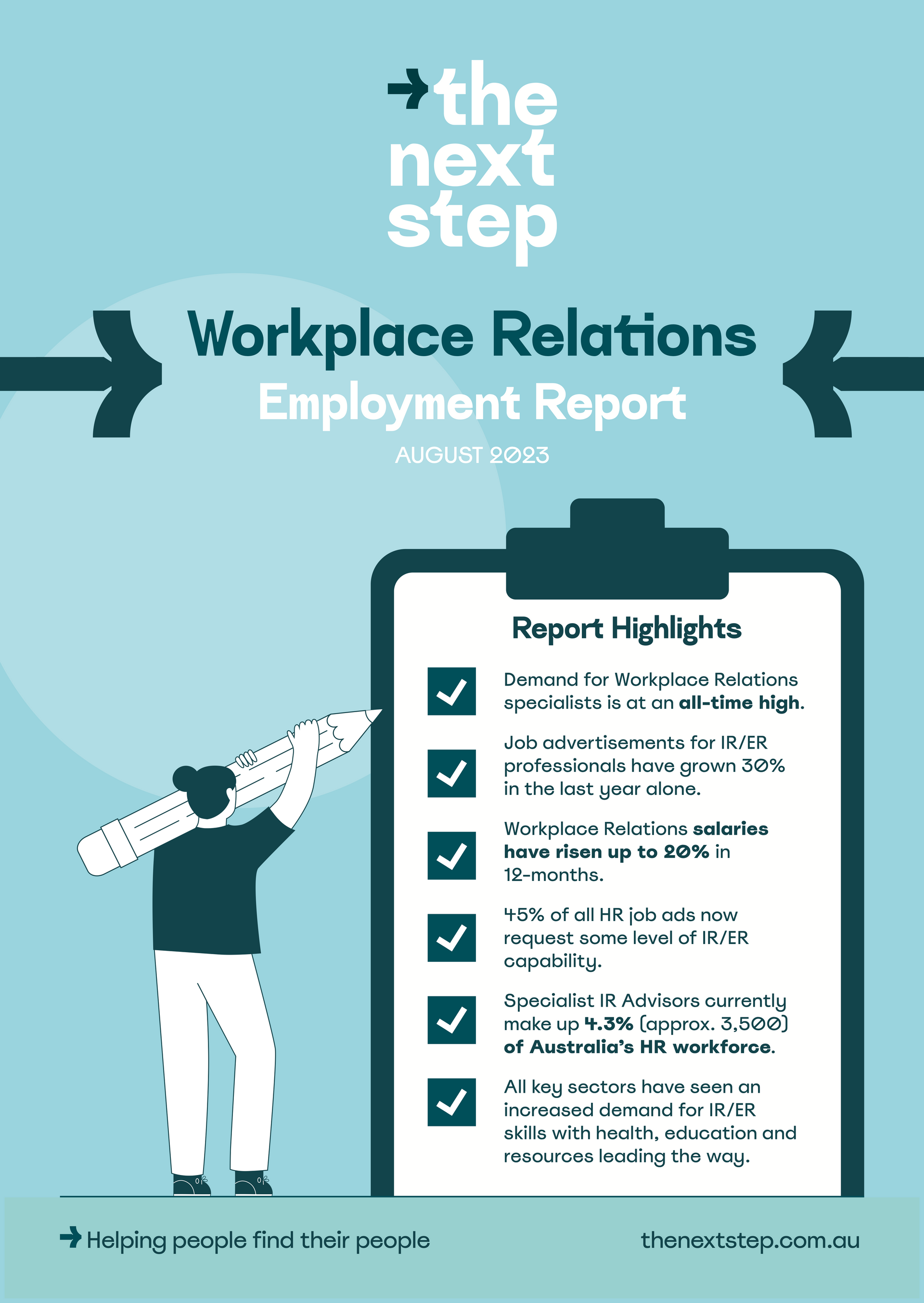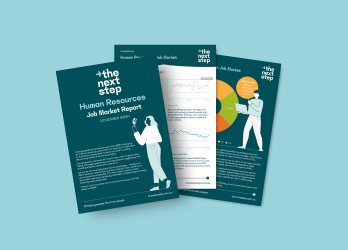Workplace Relations Employment Report - August 2023
Workplace Relations high on the agenda in 2023
Global headwinds and the lingering effects of the pandemic have seen Australia’s economy slow. Businesses are grappling with increased cost pressures, talent shortages and strong wage growth. Alongside economic pressures, a wave of federal industrial relations (IR) reforms have been introduced, sparking new tensions, media headlines and shifting priorities for employers.
Periods of concern about job security, flexibility, fair wages and workers’ rights have traditionally presented unions with opportunities to gain influence and membership. Now, traditional employment relationships, not just unionised ones, are becoming blurred. Changing ways of working, the rise of the gig economy, and technological advancements are adding extra layers of complexity.
As a result, Workplace Relations is a key priority in 2023. Advertised demand for IR/ER specialists is now at an all-time high and HR generalist roles with an IR/ER focus are highly sought-after. 45% of all Human Resources job ads now request some level of IR/ER capability.

IR/ER outperforming the general labour market
Compared to the corresponding period 3-years ago, there has been a significant increase in demand for IR/ER expertise. Some of this uplift can be attributed to a post COVID rebound of the HR job market, but even so, Workplace Relations is outperforming.
In the last 12 months alone, growth in demand is up 30% for the IR/ER National Index, with similar high levels of demand also seen in the previous 12 months. Organisations across the board have shown the confidence to hire capability on an ongoing permanent basis. This implies that solutions being sought to resolve immediate challenges are not short-term fixes.
With a relatively small supply of IR/ER specialists, it also demonstrates that employers who are unable to meet the market with competitive salary packages are losing Workplace Relations capability and are scrambling to replace it.
In the past three years, demand has also been strong for contract and interim support to help bolster IR/ER capability gaps within HR teams.

Annual agendas impacting job market dynamics
In both 2022 and 2023, we saw demand jump in the first 6 months before settling in the 2nd half of the year. This could be attributed to Government, business and employee representative organisations focusing on the calendar year for their agendas rather than the financial year.
The desire would be to start the year strongly before settling into the cycle in Jul-Dec. Furthermore, as the year comes to a close, the significant workload placed on many Workplace Relations functions can take a toll. Having been under the pump, many IR/ER professionals get to year end and decide to exit stage left!

Profile of the profession
According to the most recent ABS Census, specialist IR Advisors currently make up 4.3% (approx. 3,500) of Australia’s HR workforce and the median age of IR/ER professionals is 45 years.* This figure surpasses the average age of employees in all jobs, which is 40 years, and is notably 8 years higher than the average age within the broader HR community.
It could be inferred that maturity and experience are of particular value in the Workplace Relations profession, or that earlier career level HR professionals are not as interested in specialising in the Workplace Relations space.

Demand by sector for IR/ER skills
An increased need for Workplace Relations expertise can be seen across a wide variety of industries. It’s no real surprise that sectors like Healthcare, Mining, and Education are at the forefront of heightened demand. These sectors, characterised by large, geographically dispersed workforces operating under award systems, have collectively fostered a surge in demand. Given the scarcity of HR professionals with IR/ ER capabilities seeking new roles, the contest between employers has been competitive.
The deserved demands for better wages and conditions in Health and allied areas such as Aged Care has seen industrial action pickup. While the public health sector has generally maintained a steady level of scaled IR/ER capability, the private sector, which has traditionally not been under-resourced, is now needing to bolster its Workplace Relations workforce.

Regional demand for IR/ER skills
Across all the major employment regions, demand for Workplace Relations capability has been strong. South Australia and Queensland are the stand outs, but growth has been noticeable across the board.
Regions with a robust Resources sector are certainly the strongest performers, especially when coupled with rising demand in industries like Education and Health, which are facing nationwide pressures.

Author: Craig Mason Date published : 22-Aug-2023




